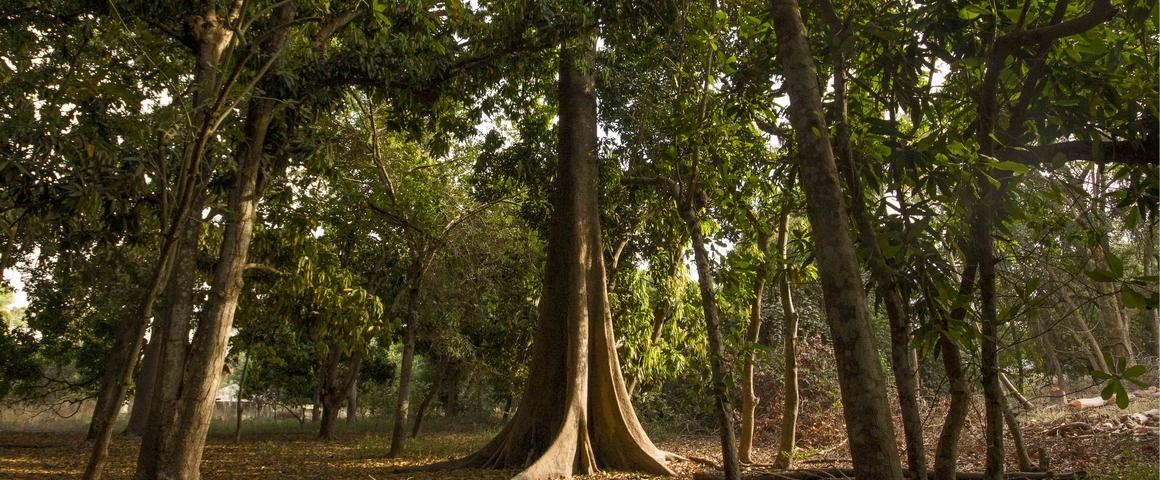Just out 30 January 2026
- Home
- CIRAD news
- News
- Restoring forest landscapes and supporting certification
Forests: reconciling preservation and logging

Forest in the Casamance region, Senegal © R. Belmin, CIRAD
We need to think beyond the failures of the first forest restoration programmes and improve certification standards to help fight imported deforestation, in France and throughout Europe. These are the ambitions of two new policy briefs issued by the Comité scientifique et technique Forêt (CST Forêt: French scientific and technical committee on forests), to which CIRAD contributed.
The CST Forêt, which was set up in 2019 by the Agence française de développement, assembles the range of French expertise in the timber sector and works to support the drafting of effective, fair public policy. In view of the urgent need to protect forests and their wealth of biodiversity, experts agree on one point in particular: when it comes to tropical forests, what becomes of local people will be a key issue.
"Guaranteeing good living conditions for the people who live in these forests is one of the things that will ensure the sustainability of actions on both a national and international level", Plinio Sist, Head of CIRAD's Forests and Societies research unit and member of the CST Forêt, insists. "The future of tropical forests will consist in reconciling preservation and logging. We need to learn to respect the role of trees and the importance of the environmental services they provide, but avoid wrapping resources that are vital for an entire population in cotton wool."
Restoration: learning from past failures
The idea of restoring forest landscapes is increasingly seducing the international community. In recent years, a multitude of tree planting programmes have been launched worldwide, with fairly mixed results. Scientists and policymakers now agree on the importance of seeing forests as part of the broader landscape and taking account of agricultural and non-forest areas in "forest landscape" restoration programmes.
Looking at landscapes and not just trees is not the only shortfall when it comes to previous policies, according to one of the CST Forêt briefs. Those policies have been too top-down or centralized, with decisions taken without involving local people. The social implications are considerable: exclusion and marginalization, not to mention the lack of efficacy and sustainability of the projects concerned. Experts are now calling on policymakers to make sure that local people are involved in decision making.
Zero deforestation-certified zones?
Those restored landscapes could provide agricultural and forest products that satisfy sustainability standards, as Plinio Sist points out. "Timber, for example, for which demand is constantly growing, is one of the seven sectors targeted by the EU drive to combat imported deforestation. One solution could be zones that combine forest restoration and sustainable logging, which could benefit from certification, giving them a market advantage."
Existing certification schemes, which are the subject of the second CST Forêt brief, do not yet satisfy French and EU standards in terms of fighting imported deforestation. The brief cites soybean, timber, palm oil and cocoa, for which there is no certification standard that fully satisfies the criteria laid down in the French national strategy against imported deforestation (SNDI).
There is also a lack of clarity around the definition of "forest degradation", a lack of product traceability, social criteria that are not implemented on the ground, a shortage of audits, and other issues, and thus substantial room for improvement that should be addressed in policies to support future initiatives.
Read the CST Forêt brief: Quel potentiel de la certification dans la lutte contre la déforestation PAR tropicale importée ?



























